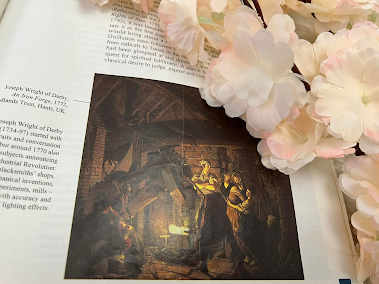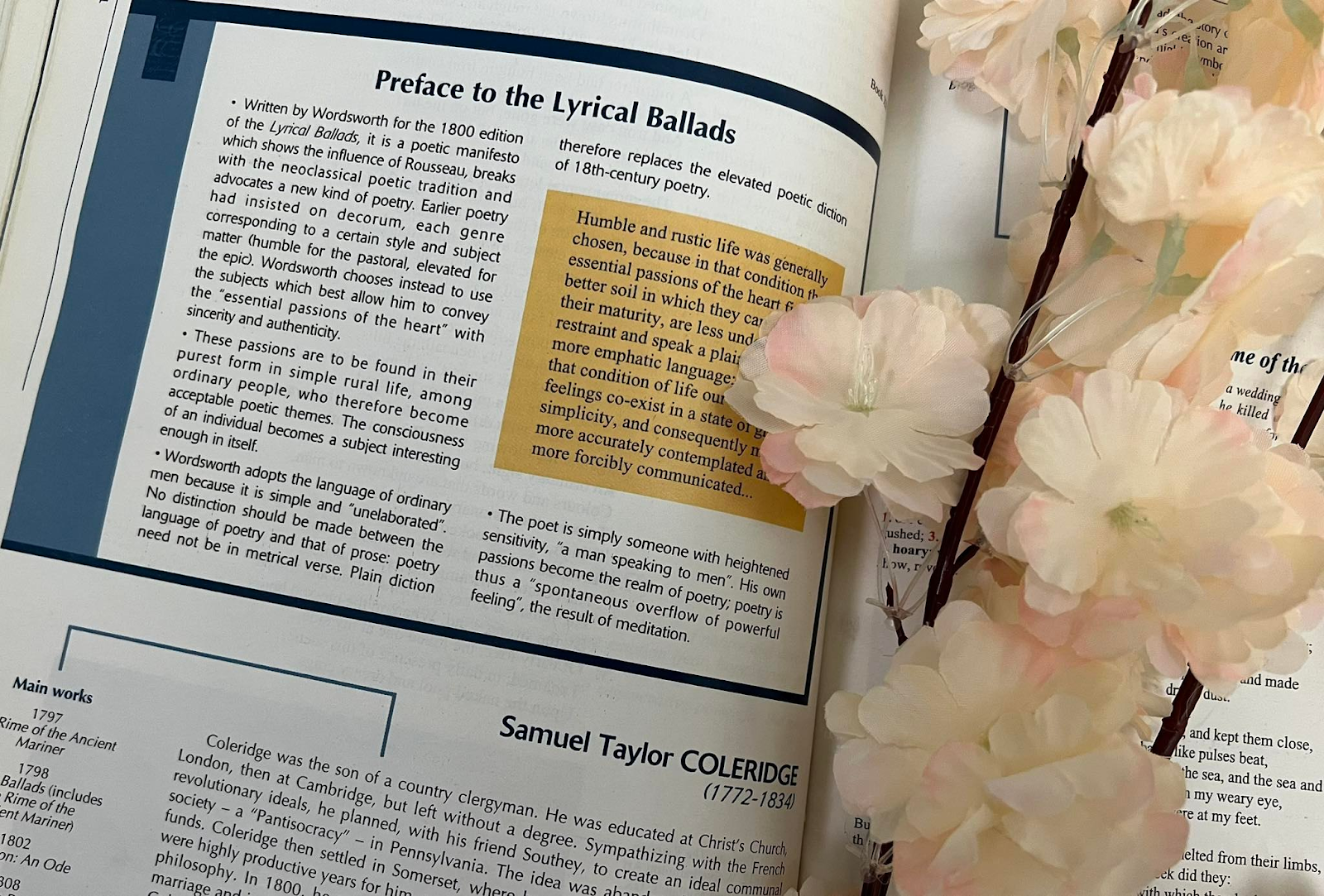Romanticism Course " Part One"
Destined to 2nd Year Students.
Designed by : Dr. SELT Djihad Afaf
A lecturer, UATL.
Definition and Background
Romanticism is a
literary, artistic, musical and even political movement that began in the late
18th century, and lasted until the
19th century—but its influence is still perceptible to this day., Romanticism can
be seen as a reaction to the drastic changes in society that occurred during
this period, including the revolutions that swept through countries like France
and the United States, ushering in grand experiments in democracy.
European Romanticism began as a reaction to the ways in which Industrial Revolution and the Enlightenment had transformed society. The Enlightenment had prioritized reason and rationality over emotion and creativity. The Industrial Revolution had urbanized England. Technology was thriving, science was hastily evoluting, and cities were becoming increasingly swarming. There was a kind of shift of the European societies from the agrarian culture to the industrial one.
As an outcome of these changes,
many people felt like humanity was trailing its relationship with the natural
world and the sublime. They believed that this whole modernity has affected the
human soul and rendered it more selfish.
Many scholars believe that
despite the fact that the industrial revolution was an economic success it was
also a social failure. This is due to tremendous
vices that were brought to the fore such as child labor, spread of unemployment
(because men were replaced by machines) and widening the gap between classes.
Amidst these hard times, appears
the effective contribution of the Romanticists: a group of artists, writers,
and intellectuals who regarded themselves not only as literary laureates but
rather political activists and patriots who celebrated nature, emotion, and the
spiritual. They criticized the way society had changed and glorified the past
in their work.
One of the most brilliant facets of literature is that it consists a reflective a mirror of life. Europe and America witnessed drastic changes in the late eighteenth century, and the Romantic Era reflected this change.
The Main Characteristics of Romanticism ( The Five I s) :
Imagination
Imagination presides the thought and philosophy of this
movement. It is highly stressed on and prioritized over reason. In fact, glorifying imagination comes as a backlash
against the rational thinking that characterized the Neoclassical period or
“Age of Reason.” Imagination is
crucial as it is the basis of creativity which is the origin of all arts.
Individualism
Romantics celebrate the individual. The Romantics avowed the significance of the individual, the
unique, and the eccentric. Their
celebration of the individual in this movement is taken to the extreme that it
tends to oppose the traditional view of the concept of the hero. The
neoclassical representation of the hero outcasts the character of the
magnificent and the supernatural. However , it takes a certain degree of strength
for a common man to become the archetype of a hero.
Inspiration
The Romantic artists and poets tend to seek inspiration within the broods of nature. For Romantics, nature is often presented as a work of art in itself, created by a divine imagination and uttered through emblematic language.For them, it is the source of serenity and positive influence on the human mind and soul.
Idealism
Idealism is the perception that views perfection in every aspect of life.It refers to the different theories and views that emphasize the spiritual side of humanity, its mindset, and favoring language over matter.
Idealism is the metaphysical view that associates reality to ideas in the mind rather than to material objects. It lays emphasis on the mental or spiritual components of experience, and renounces the notion of material existence. Idealists regard the mind and spirit as the most essential, permanent aspects of one’s being. The philosophical views of Berkeley, Christian Science, and Hinduism embrace idealist thought as they relate it to the existence of a supreme, divine reality that transcends basic human understanding and inherent sensory awareness.- Omonia Vinieris (2002)
Intuition
Romantics often put a premium on “intuition,” or the inner
guts, feelings and instincts, over reason. They believe that knowledge is acquired
through intuition more than deduction. William Words Worth summarizes it all as he claims: “all good
poetry is the spontaneous overflow of powerful feelings.” W.W









No comments:
Post a Comment